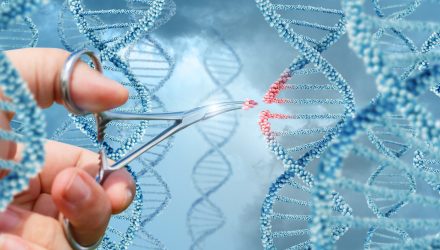Related: The Growth Potential of the Robotics ETF
There is, though, no question that the use of AI could strengthen and augment human capabilities in a number of areas across both healthcare and pharmaceuticals, including diagnosis. It could even be used to help to identify the most suitable treatment for an individual patient, based on their medical history, symptoms and preferences.
Other sources suggest that AI is likely to empower patients and consumers, just as it has empowered customers in other industries. Used effectively, for example, AI systems could allow chronically-ill patients to take more responsibility for their own health, involving healthcare professionals only when necessary.
The AI system could monitor particular indicators for each patient, such as blood pressure, heart rate, or blood sugar. It would provide built-in safeguards to ensure that healthcare professionals were alerted should those indicators breach individual ‘safety levels’. The point is to harness the potential of AI to increase individualisation and personalisation, and place patients at the heart of healthcare provision.
Beyond the specific
It is also important to remember that AI has the same potential in life sciences as in any other field. The same techniques can be applied across a wide range of industries, including life sciences. For example:
- Google’s algorithm may struggle with some of the jargon around life science research, or fail to find specific new research papers, especially on sites that are not visited very often. Researchers are seeing the benefits of new machine learning-based search platforms tailored towards life science research. These enable more accurate and specific searches, improving the usefulness of the information located.
- Pharmaceutical companies are using machine learning and AI models to predict the uptake and use of new medicines in particular markets. The idea behind this is not new, but the models, and therefore the forecasts, are better and more accurate than has been possible with other technology.
A question of how
It may well be that it is not so much a question of what AI can do for healthcare and life sciences, as how. What changes will be necessary in life science organisations and healthcare providers to enable rapid spread of AI technology?
The Accenture report suggests that collaboration within ‘ecosystems’ is likely to be one of the most important developments. A massive 90% of life sciences executives believe that this will be important in future, as a way of delivering value for organisations. There are also likely to be workforce changes required to take advantage of AI.
This article has been republished with permission from SAS.
